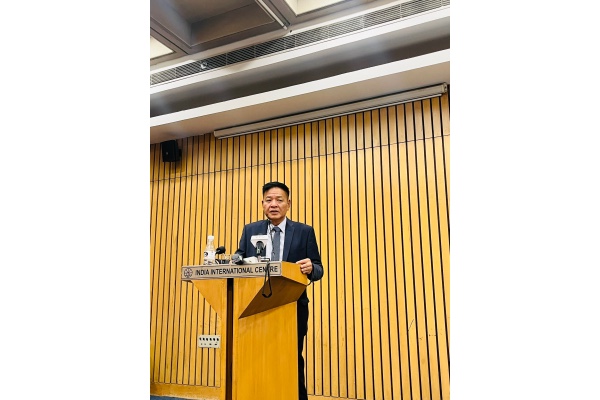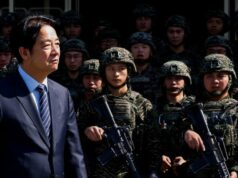NEW DELHI: “It should be noted that China does not respect weakness, only strength. That’s what I tell the international community all the time. If you keep acting like a pony, China will keep riding you.”
A harsh warning from the man who has every reason to be concerned by China and therefore studies that country closely. Penpa Tsering, the Sikyong or president of the Central Tibetan Administration, was speaking in Delhi at a seminar on China’s Tibet policy. While quietly applauding India standing up to China in recent years, he urged the West to emulate this country.
“European nations who have a trade deficit with China, should ask themselves who needs who more? Do the Chinese need the Europeans more or vice-versa?,” he asked noting that “The world only woke up to this China threat post Ukraine and today it must be willing to extend transatlantic cooperation to contain China. The US can no longer do it alone as China is too big.”
He gave the assembled scholars his sense of how the Chinese see the Ukraine conflict, now in its second year. “When the news started spreading, that Prigozhin is a good friend of Putin, China stopped covering the news from Russia altogether. It was only when it was announced that Prigozhin would be going into exile in Belarus that the Chinese media began covering the story.”
More than anything else, Tsering said, they are worried about the implications for their own country. President Xi Jinping fears a coup despite the enormous concentration of power in his hands.
“Under Xi, you cannot hold a meeting with more than three members of the politburo at one time without express permission from the president. This convention has been there in the past, but it has been enforced more strongly under Xi,” Tsering said, adding that, “The other thing to note is that in the last three or four years Xi has been transferring the generals every single year from place to place. This is to ensure that the generals do not build up relations in the place where they are and this suggests that he is worried about a military coup.”
Such fears may not be peculiar to Xi. Statistics from China’s finance ministry showed that the internal security budget was 1.4 trillion yuan while that on external security was 1.3 trillion yuan in 2020, suggesting to Tsering that there remains a “deep distrust between the rulers and the ruled.” According to him, such distrust explains China’s growing acts of belligerence whether it is on the LAC, the South China Sea, or the Spratly Islands, as it helps the Communist Party position itself as strong and provides an external enemy.
In his view, “What can bring China down right now is the economy. Currently, 11.6 million Chinese from the ages of 16-24 are out of jobs and this is a very conservative figure because you have not counted the ages above 24. This economic situation has been made worse because Xi is using the same policies as Mao, sending educated young people to rural areas to work in the fields. This will make Chinese who have studied in major universities around the world wonder just why they have spent all that money on education. This is not the Chinese dream they were promised by Xi. The Chinese dream is falling apart.”
Traveller, bibliophile and wordsmith with a yen for international relations. A journalist and budding author of short fiction, life is a daily struggle to uncover the latest breaking story while attempting to be Hemingway in the self-same time. Focussed especially on Europe and West Asia, discussing Brexit, the Iran crisis and all matters related is a passion that endures to this day. Believes firmly that life without the written word is a life best not lived. That’s me, Ashwin Ahmad.





